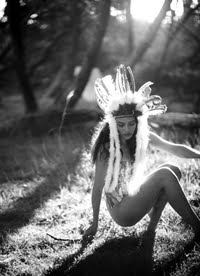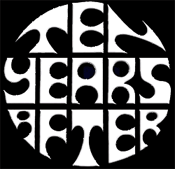When people talk about Arthur Lee and Love, it’s generally not Four Sail they’re talking about. A pity – because this album is just as crucial as the first three “classic-lineup” records – albeit for slightly different reasons. Some would argue that Love lost much of the magic that initially drew listeners in after the career-defining Forever Changes – that Lee had nothing left to say and nowhere to go. An understandable stance, in light of his already significant achievements, but simply not true.
Four Sail features a completely re-tooled lineup – with a more muscular power trio augmenting Lee’s still ornate songwriting sensibilities. While the new band works squarely in the zone of the changing times (post-Hendrix acid-blues virtuosity), there are more than enough of Lee’s trademark flamenco guitar lines and intuitive songwriting twists and turns to mark this as something that could only be a Love album. Frankly, it’s exciting to hear his singular instincts applied to a new model, and to their credit, the band run with it, sounding vital and electric, re-animating some of the scrappy garage-band energy that made “Seven And Seven Is” so invigorating. Incredibly, Lee’s fragile humanism still manages to cut through the din, scaling new emotional heights in songs like “Robert Montgomery” and “Always See Your Face.” One of the things that set Love apart, and that remains undissipated here, was Lee’s fearlessness in laying his heart and soul out for the crushing, conveying the joy and terror of the human experience in ways that few dared, or would have had the eloquence to articulate. Things would go downhill pretty quickly for Lee after this, but Four Sail remains the defiant last stand of a formidable creative mind, still capable of flipping the script and brokering triumph out of dissolution. —Jon Treneff
There are at least two different versions of Four Sail out there. When Elektra received Arthur Lee’s mixes of Four Sail, they were concerned about the general roughness and distortion. As a result, they added reverb and tried tidying them up for release, but this does make things a little more distant. These were used on the original Elektra LP and the Elektra CD issue. .Some of the “dry mixes” (Arthur’s mixes) were used on the “Love Story” comp. This is the UK CD on a label called Thunderbolt, which apparently uses Arthur’s original mixes. Elektra may have also had a go at the multitracks and done some fresh mixes, but probably gave up when they realized the distortion was actually on the multitrack tapes.

























































































2 comments:
I have this on a lp but never knew about the different versions. Thanks for this one.
steVe
PS nobody has mentioned the "new" look to your site. I love the color scheme.
Thanx fot the feedback
Post a Comment